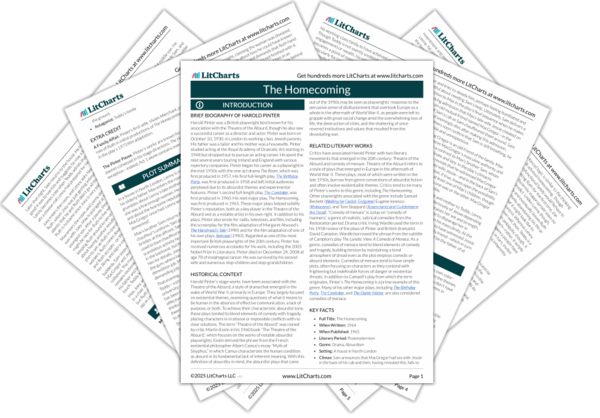Max’s scathing attack on Sam’s work seems totally unprompted and unjustified. When Max calls Sam a “bitch” and suggests that all Sam does at work is “sit[] on [his] arse at London Airport” all day, Max implicitly criticizes Sam’s line of work for not being masculine enough for Max to respect it as good, honorable men’s work. This is the second time Lenny has called Max “Dad.” This time, rather than ignoring Lenny outright, Max verbally attacks him, demanding that Lenny not call him that. Whether Max is simply trying to belittle or humiliate Lenny or whether there is something deeper to Max’s distance from Lenny—is Max perhaps not Lenny’s father at all?—remains unclear for now. When Max describes Joey’s hobby of boxing as “a gentleman’s game,” he implicitly pits Joey against Sam and Lenny, suggesting that the latter two are less masculine than (and therefore inferior to) Joey, the stereotypical jock.
